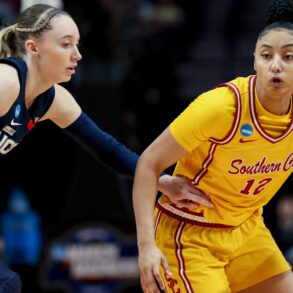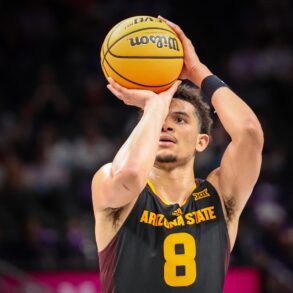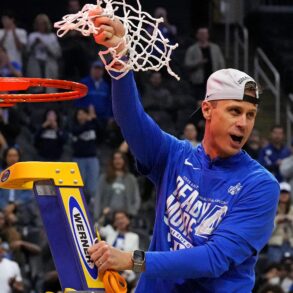ATLANTA, Georgia – No one knows how much NIL money the players who will be on the floor for the South Regional version of the Sweet 16 at State Farm Arena have made this season. Suffice it to say that it is well into eight figures. Players rarely discuss their NIL value, perhaps because it invites criticism. But most reject the idea that money has made them somehow less committed to their coaches or teammates.
Fifth-year Auburn center Dylan Cardwell’s commitment to Auburn, to his teammates and his coaches is there for all to see. NIL, he said Thursday, helped make that possible.
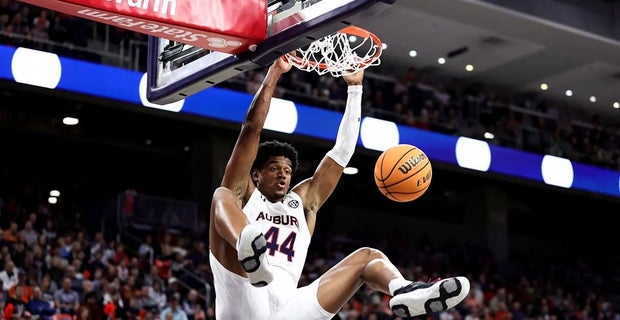
“For me, it’s been life-changing,” said Cardwell, who plans to be a pastor when he is finished playing basketball. “I think it’s been beneficial to every single person. Obviously, you look at a person like Johni Broome who probably could have gone to the league his first year at Auburn or second year at Auburn. The impact of NIL has allowed players to stay in college for longer.
“It’s really been that tradeoff of do I want to risk going late first round or second round or do I want to come back to school and work on my game or work on those defects rather than going to the NBA where it’s a business, a cutthroat business, where you can’t afford that time really just to go in there unready.”
NIL money, Cardwell said, has been life-changing not just for him but for players across the sport and for their families.
“I think NIL is one of the best things that has happened in college basketball history,” Cardwell said. “I do think it needs to be a little bit more regulated. Other than that, I’m grateful for the opportunity. I’m grateful to be so blessed to be in a time as this when athletes can really reap the benefits of the work we put in. It’s rewarding.”
Almost as challenging, maybe more challenging for coaches and even players is the unfettered transfers. After the NCAA allowed one-time transfers without penalty in 2021, a court order took away even that restriction.
Brakefield, from Jackson, Miss., signed with Duke out of high school. After his freshman season, he returned to his home state to play for Ole Miss. His move meant far more than a chance to be closer to home.
“It’s great,” Brakefield said. “Obviously, it changes lives. I don’t know if you’ve seen my story with my little brother, being able to change his life and move him out of the situation that he was in and move him to Oxford and be like the father figure for him. It’s been great for me. Obviously, I wouldn’t be able to do that without NIL.”
Brakefield’s “little brother” is not related to him by birth, but he said they would be no closer if they shared family blood. He told the story Thursday. Here it is:
“His name is Brandon Hill. I met him about eight, ago when he was 8 years old. I met him in Huntington, West Virginia, where I went to prep school. He’s the nephew of my high school coach. So just him being around, he was like our little brother, little manager, and he just hung around his uncle all the time just to stay away from trouble.
“Just him being around, I felt his energy. I kind of saw myself in him a lot. So just him being around a lot, I took him under my wing early. Then we just stayed in touch all these years, and I just treat him like a little brother.
Then I realized as he got older, realizing his situation, I wanted to better his life. With the help of NIL, I was able to move him to Oxford this past summer, and we’ve been able to 16.”
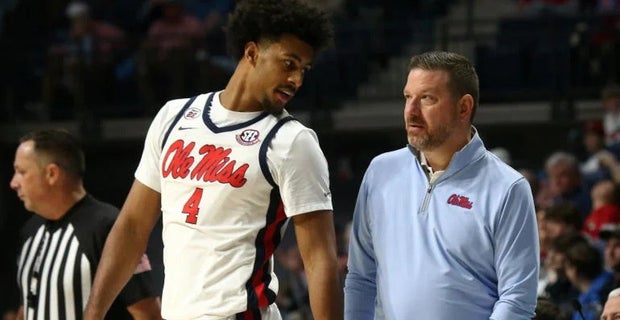
Pearl, like Michigan State’s Tom Izzo, is a strong supporter of players being paid, but he acknowledges that it has changed recruiting in major ways.
“It’s become way more transactional,” Pearl said. “They don’t care about the fact that I have graduated 46 student-athletes in the last 11 years, that I’ve graduated 33 African American men in the last 11 years. That stuff used to matter. Unfortunately, it doesn’t matter as much anymore.
“It still matters to me. It still matters to Tom Izzo. It still matters to our university, and I’m proud of it. If you’re uncomfortable hearing it, I’m sorry. I’m sorry for making you a little uncomfortable.”
NIL doesn’t change, Pearl said, what should be important to coaches in his game.
“We are still coaches, and these are still student-athletes,” Pearl said. “We still have a responsibility to coach them as hard as we can. But when we’re leaving them now, we need to leave them with a degree and not just the ability to work at Subway, but to own five of them.”
This post was originally published on this site be sure to check out more of their content.





